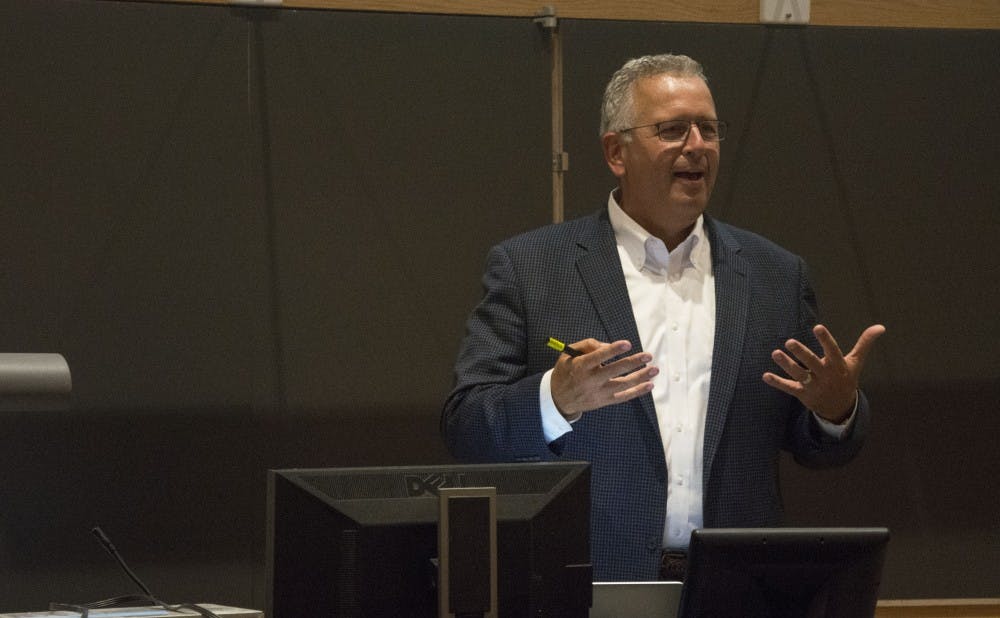Joseph DeSimone, co-inventor of a new form of three-dimensional printing technology, emphasized the importance of diversity at the Levine Science Research Center Tuesday.
DeSimone—who is a professor of chemistry at the University of North Carolina at Chapel Hill and also CEO of printing company Carbon3D—said diversity plays an important role in problem solving. He touched upon three specific types of diversity: disciplinary diversity, socioeconomic diversity and diversity of personality.
“What often happens when one starts talking about diversity, and in any context, is that there is an immediate discussion about ability," DeSimone said. "Unequivocally, ability matters, in all that we do. But so does diversity, they’re different topics. And you don’t want a basketball team or a football team or a design team to have everybody with the same sets of skills and perspectives.”
In championing socioeconomic diversity, DeSimone explained that having people from different backgrounds on a team can provide wider perspectives. This serves as a natural complement to disciplinary diversity, he said.
"Someone who grew up with not much money thinks about problem solving fundamentally differently than someone who grew up with a lot of money," he said, based on his experiences.
Lastly, he touched on diversity of personality, noting that some people are quick to come up with an idea, but others take longer for their burst of inspiration.
"Some people are really great in the moment. We’re talking about some topic and they come up with an idea in the moment," he said. "But you’ve got to be careful because there are a lot of people who come up with ideas, often the best ideas, some 24 or 48 hours later."
Making sure all types of people get to participate, he said, is crucial.
Valerie Ashby, dean of the Trinity College of Arts & Sciences and one of DeSimone’s Ph.D. student mentees, held a reception outside the auditorium after the talk. Ashby—who organized the event and advertised it to the student body—said students should work to build their own mentoring relationships.
In a panel Monday, Ashby explained that DeSimone's mentorship was critical to her achieving success in her career and overcoming self-doubt.
"So I had no expectations other than to just give students an opportunity to see somebody who’s doing great things," she said. "And if they’re interested in innovation see a great mentor, and be able to do just what they’re doing right now.”
Students in attendance had mixed reactions. Some said it was not the science-oriented talk they imagined, while others were encouraged by the focus on interdisciplinary work.
Anna Li, a junior, said she liked the talk overall but that its focus was different than expected.
“I thought it was going to be more about translational science," she said. "I’m interested in that, so I personally was a little disappointed that he didn’t go more into how MD/Ph.D.’s play into it."
On the other hand, freshman Manuel Hernandez said that he enjoyed DeSimone's focus on intersectionality.
"I think Duke does a really good job with that," he said. "Of encouraging you to look at different majors or a central idea under different lenses. So I think he really encapsulated that idea in his talk.”
Get The Chronicle straight to your inbox
Sign up for our weekly newsletter. Cancel at any time.

